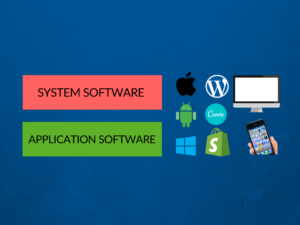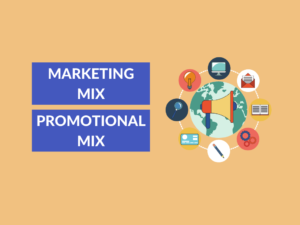ERP vs CRM: Understanding the Key Differences
Managing business operations and customer relationships effectively are crucial for the success of any company. In achieving these goals, two popular software solutions come into play: Enterprise Resource Planning (ERP) and Customer Relationship Management (CRM). While both ERP and CRM are powerful tools, they serve distinct purposes within an organization. In this article, we will delve into the features, uses, and key differences between ERP and CRM to help you make informed decisions for your business.
What is ERP?
ERP, or Enterprise Resource Planning, is a business management software that integrates core business processes, automates tasks, and streamlines operations. It allows companies to have a centralized database where various departments can access and share critical information, making collaboration and decision-making more efficient.
Examples of ERP:
- SAP ERP
- Oracle ERP Cloud
- Microsoft Dynamics 365
- NetSuite ERP
- Infor CloudSuite
Uses of ERP:
ERP software is used to manage various business functions, including:
- Financial management
- Human resources
- Supply chain management
- Purchasing and procurement
- Inventory management
- Production planning and scheduling
- Customer relationship management (CRM)
What is CRM?
CRM, or Customer Relationship Management, is a software solution that focuses on managing customer interactions, tracking leads, and improving sales and service processes. It enables businesses to build strong relationships with their customers by gathering and analyzing customer data, streamlining communication, and delivering personalized experiences.
Examples of CRM:
- Salesforce
- HubSpot
- Microsoft Dynamics 365 CRM
- Zoho CRM
- Oracle CX
Uses of CRM:
CRM software is used to enhance customer relationships and sales processes, including:
- Lead management and tracking
- Sales opportunity management
- Customer communication and engagement
- Customer support and service management
- Marketing automation
- Analytics and reporting on customer data
Differences between ERP and CRM:
| Difference Area | ERP | CRM |
|---|---|---|
| Focus | ERP focuses on managing internal business processes. | CRM focuses on managing customer interactions and relationships. |
| Primary Objective | Efficiency and cost reduction | Customer satisfaction and revenue growth |
| Modules/Functionality | Financial management, HR, supply chain, etc. | Lead management, customer support, marketing, etc. |
| Data Centralization | Centralizes data from various departments into one system. | Centralizes customer data for better insights and engagement. |
| User Base | Used by employees across different departments. | Used by sales, marketing, and customer service teams primarily. |
| Implementation Complexity | Complex implementation due to extensive customization. | Less complex implementation with straightforward processes. |
| Integration | Integrates with various systems for end-to-end business processes. | Can integrate with ERP and other systems for better collaboration. |
| Decision-Making | Provides insights for strategic decision-making at the organizational level. | Provides insights for tactical decision-making at the customer level. |
| Target Users | Used by employees at all levels within the organization. | Used by employees directly involved in customer-facing activities. |
| Cost | Can be more expensive due to complex implementation and customization. | Generally less expensive compared to ERP due to simpler functionality. |
Conclusion:
In summary, ERP and CRM are distinct software solutions with different focuses and purposes. ERP primarily caters to internal business processes, streamlining operations, while CRM is designed to manage customer interactions and relationships, driving revenue growth. Understanding the differences outlined in the table above can help businesses determine which software solution best suits their specific needs.
People Also Ask:
Q: What are the key benefits of implementing ERP?
A: Implementing ERP software can lead to increased operational efficiency, improved collaboration between departments, better inventory management, enhanced financial tracking, and more informed decision-making at the organizational level.
Q: How can CRM software benefit sales teams?
A: CRM software can help sales teams automate lead management, track sales opportunities, streamline communication, provide real-time customer insights, and improve customer relationship management, resulting in increased sales productivity and revenue growth.
Q: Can ERP and CRM systems integrate with each other?
A: Yes, ERP and CRM systems can integrate with each other to facilitate seamless data sharing between departments, providing a more holistic view of the business and enabling better collaboration between sales, marketing, finance, and other teams.
Q: What factors should businesses consider when choosing between ERP and CRM systems?
A: Important factors to consider include the specific needs of your business, the scope of functionality required, integration capabilities with existing systems, implementation complexity, budget constraints, and long-term scalability.
Q: Are ERP and CRM systems suitable for businesses of all sizes?
A: Yes, both ERP and CRM systems are available for businesses of various sizes. However, smaller businesses may opt for simpler and more cost-effective CRM solutions, while larger organizations may require the broader functionality and scalability offered by comprehensive ERP systems.



